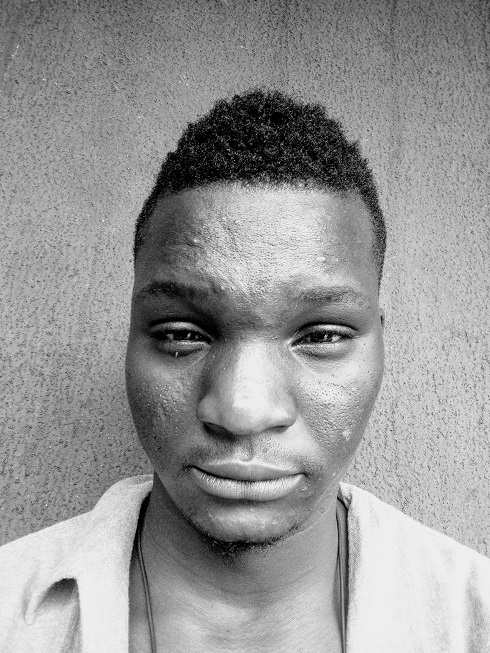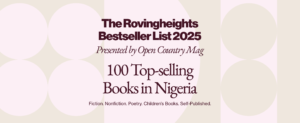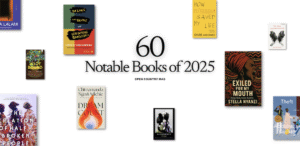Yesterday, the Swedish Academy awarded the Tanzanian novelist Abdulrazak Gurnah the 2021 Nobel Prize in Literature, making the 73-year-old only the second Black African to win the prize, after Nigeria’s Wole Soyinka in 1986. Gurnah joins an illustrious lineup of more African Nobel laureates in literature: Egypt’s Naguib Mahfouz in 1988, South Africa’s Nadine Gordimer in 1991, South Africa’s J.M. Coetzee in 2003, Zimbabwe’s Doris Lessing in 2007, and Mauritius’ Jean-Marie Gustave Le Clezio, who identifies primarily as and works in French, in 2008.
Gurnah won “for his uncompromising and compassionate penetration of the effects of colonialism and the fate of the refugee in the gulf between cultures and continents.” He was a surprising recipient, as he had never been mentioned among contenders or bet bookmakers.
The prolific Gurnah has written ten novels, 2020’s Afterlives, which we covered, being the most recent. His fourth novel, Paradise (1994), was shortlisted for both the Booker Prize and the Whitbread Prize for Fiction. His sixth novel, By the Sea (2001), was longlisted for the Booker Prize and shortlisted for a Los Angeles Times Book Award. His other novels are Memory of Departure (1987), Pilgrims Way (1988), Dottie (1990), Admiring Silence (1996), Desertion (2005), The Last Gift (2011), and Gravel Heart (2017).
Gurnah’s work concerns itself with cultures and continents, a search for something the characters never truly find. The state plays a visible role in his novels, as motivations clash and ideologies contend for supremacy, none winning. His books open the culturally diverse East Africa to the world.
“Gurnah’s dedication to truth and his aversion to simplification are striking,” writes Anders Olsson, Chairman of the Nobel Committee. “In Gurnah’s literary universe, everything is shifting—memories, names, identities. This is probably because his project cannot reach completion in any definitive sense. An unending exploration driven by intellectual passion is present in all his books, and equally prominent now, in Afterlives, as when he began writing as a 21-year-old refugee.”
Gurnah, until his recent retirement, was Professor of English and Postcolonial Literatures at the University of Kent in Canterbury, with writers such as Wole Soyinka, Ngugi wa Thiong’o, and Salman Rushdie his principal focus. As his own literary merit demands, Gurnah’s work has been the subject of many academic essays, dissecting aspects of his expansive fictional universe.
To understand his work, the Swedish Academy recommends these academic essays.
1. “Abdulrazak Gurnah with Susheila Nasta (2004)” in Writing Across Worlds : Contemporary Writers Talk / edited by Susheila Nasta. – London ; New York : Routledge, 2004
2. Bardolph, Jacqueline, “Abdulrazak Gurnah’s Paradise and Admiring Silence: History, Stories and the Figure of the Uncle” in Contemporary African Fiction / edited by Derek Wright. – Bayreuth : Breitinger, 1997
3. Bosman, Sean James, Rejection of Victimhood in Literature : by Abdulrazak Gurnah, Viet Thanh Nguyen, and Luis Alberto Urrea. – Leiden : Brill, 2021
4. Callahan, David, “Exchange, Bullies and Abuse in Abdulrazak Gurnah’s Paradise” in World Literature Written in English, Vol. 38; Iss. 2, January, 2000
5. Chambers, Claire, British Muslim Fictions : Interviews with Contemporary Writers. – Basingstoke : Palgrave Macmillan, 2011
6. The Contemporary British Novel / edited by James Acheson and Sarah C. E. Ross. – Edinburgh : Edinburgh University Press, 2005
7. Deckard, Sharae, “Paradise Rejected: Abdulrazak Gurnah and the Swahili World” in Paradise Discourse, Imperialism, and Globalization: Exploiting Eden. – London : Routledge, 2014
8. Falk, Erik, Subject and History in Selected Works by Abdulrazak Gurnah, Yvonne Vera, and David Dabydeen. [Diss.] – Karlstad : Karlstad University Press, 2007
9. Kaur Boparai, Mohineet, The Fiction of Abdulrazak Gurnah: Journeys through Subalternity and Agency. – Newcastle-upon-Tyne : Cambridge Scholars Publishing, 2021
10. Lee, A. Robert, “Long Day’s Journey: The Novels of Abdulrazak Gurnah” in Other Britain, Other British: Contemporary Multicultural Fiction / edited by A. Robert Lee. – London : Pluto Press, 1995
11. Malak, Amin, “The Qur’anic Paradigm and the Renarration of Empire: Abdulrazak Gurnah’s Paradise” in Muslim Narratives and the Discourse of English. – Albany : State University of New York Press, 2005
12. Maslen, Elisabeth, “Stories, Constructions and Deconstructions: Abdulrazak Gurnah’s Paradise” in Wasafiri 24, September, 1996
13. Mirmotahari, Emad, “Paradises Lost: A Portrait of the Precolony in Abdulrazak Gurnah’s Paradise” and “Situational Identities: Exiled Selves in Abdulrazak Gurnah’s Memory of Departure and Pilgrim’s Way” in Islam in the Eastern African Novel. – New York : Palgrave Macmillan, 2011
14. Moorthy, Shanti, “Abdulrazak Gurnah and Littoral Cosmopolitanism” in Indian Ocean Studies: Cultural, Social, and Political Perspectives / edited by Shanti Moorthy and Ashraf Jamal. – London : Routledge, 2010
15. Nasta, Susheila, “Abdulrazak Gurnah, Paradise” in The Popular and the Canonical: Debating Twentieth Century Literature 1940-2000 / edited by David Johnson. – London : Routledge, 2005
16. Newns, Lucinda, “Homelessness and the Refugee: Abdulrazak Gurnah’s By the Sea” in Domestic Intersections in Contemporary Migration Fiction : Homing the Metropole. – London : Routledge, 2020
17. Nyman, Jopi, “Migration and Melancholia in Abdulrazak Gurnah’s Pilgrims Way” in Displacement, Memory, and Travel in Contemporary Migrant Writing. – Leiden : Brill-Rodopi, 2017
18. Olaussen, Maria, “Refusing to Speak as a Victim: Agency and the arrivant in Abdulrazak Gurnah’s Novel By the Sea” in Africa Writing Europe: Opposition, Juxtaposition, Entanglement / edited by Maria Olaussen and Christina Angelfors. – Amsterdam : Rodopi, 2009
19. Ruberto, Marco Neil, Itinerant Narratives : Travel, Identity and Literary Form in Abdulrazak Gurnah’s Fiction. [Diss.] – Nottingham : Trent University, 2009
20. Schwerdt, Dianne, “Looking In on Paradise: Race, Gender and Power in Abdulrazak Gurnah’s Paradise” in Contemporary African Fiction / edited by Derek Wright. – Bayreuth: Breitinger, 1997
21. Weedon, Chris, “Becoming Foreign : Tropes of Migrant Identity in Three Novels by Abdulrazak Gurnah” in Metaphor and Diaspora in Contemporary Writing / edited by Jonathan P. A. Sell. – Basingstoke : Palgrave Macmillan, 2014
22. Zamorano Llena, Carmen, “‘Memories of lost things’. Narratives of Afropolitan Identity in Abdulrazak Gurnah’s By the Sea and Gravel Heart” in Fictions of Migration in Contemporary Britain and Ireland. – Basingstoke : Palgrave Macmillan, 2020
Watch the announcement below:






One Response
Yesterday, the Swedish Academy awarded the Tanzanian novelist Abdulrazak Gurnah the 2021 Nobel Prize in Literature, making the 73-year-old only the second Black African to win the prize, …
Sorry, Gurnah is a Yemeni Arab, with light brown skin. There is nothing Black and little African about him except the fact that he was born in Zanzibar. If you want a Black African who is actually known for his writings and activism – then clearly Ngugi is your man. Gurnah’s books did not sell well in Tanzania, and I have never seen a copy of any Gurnah book in Zanzibar.